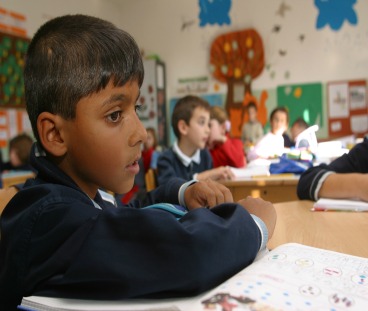Mr. President, last month, the Prime Ministers of eight Central and Southern European countries met in Sofia, Bulgaria, for their first meeting in what has been dubbed “the Decade of Roma Inclusion.” This initiative is designed to spur governments to undertake intensive engagement in the field of education, employment, health and housing with respect to Europe’s largest, most impoverished and marginalized ethnic minority, the Roma. The Open Society Institute, the World Bank, the European Commission and the United Nations Development Program, all supporters of this initiative, hope that this effort will result in meaningful improvements over the course of a 10-year period.
In December, a donors’ conference pledged $42 million for a Roma Education Fund. But the real goal is to get governments to give more help to their own people from their own budgets, as well as to make better use of the funds already available from organizations like the EU.
The fact is that Romani riots in Plovdiv, Bulgaria, in 2002 and in eastern Slovakia last year should be a wake-up call for governments with significant Romani communities. These countries cannot afford to ignore the crushing impoverishment and crude bigotry that so many Roma face on a daily basis. The Decade of Romani Inclusion is all well and good, and I commend the governments that are participating in this initiative. But much more needs to be done to truly advance Romani integration. It must start with a message of tolerance and inclusion from the highest levels of government.
Unfortunately, too often the voices that are heard are those spreading crude stereotypes and inter-ethnic hatred. I am particularly alarmed by what appears to be an increase in anti-Roma statements in Bulgaria.
Last summer, the head of one of Bulgaria’s leading trade unions, Konstantin Trenchev, broadly characterized all Roma as criminals, and then called for the establishment of vigilante guards to deal with them. More recently, Ognian Saparev, a Member of Parliament from the Bulgarian Socialist Party, dismissed the significance of reports that the Mayor of Pazardzhik has trafficked Romani girls for the benefit of visiting foreigner diplomats. Saparev reportedly claimed that the statutory rape of these girls shouldn’t be considered a crime because Romani girls are “mature” at age 14. Significantly, Saparev also gained headlines last year for publishing an inflammatory article about Roma in which he argued they should be forced to live in ghettos.
Even worse statements have come from Russia. Yevgenii Urlashov, a city official in Yaroslavl, recently characterized all Roma as drug dealers and called for them to be deported. Not to be outdone, fellow municipal legislator, Sergei Krivnyuk, said, “residents are ready to start setting the Gypsies’ houses on fire, and I want to head this process.”
Although nongovernmental human rights groups have condemned this anti-Romani rhetoric, other leaders in Bulgaria and Russia have largely remained silent. But it is critical that public leaders, from all walks of life, speak out against such hate mongering.
Speaking on the occasion of the 60th anniversary of the liberation of Auschwitz, Polish President Kwasniewski noted that “complete extermination was also [intended] to be the fate of the Roma community.” It will not do, 60 years after the liberation of Auschwitz, to stand by in silence while Roma are crudely caricatured as criminals, just as they were by the Nazis. And we must not stand by in silence when a member of Parliament dismisses the criminal act of trafficking of children, simply because they are Romani.




